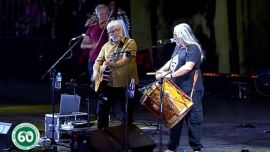"Perhaps we get more accurate portrayals of cities or countries by crime writers than in guide books and travel apps.” That might be a reasonable suggestion if you are planning weekend escapes in these complex times or a substantial summer break or family holiday. This quote was stated as I leaf through an old(-ish) copy of an English magazine I am particularly fond of. Well, I would be wouldn’t I. The publication is Index on Censorship, published in London since 1972. I was the editor between 1989 and 1993. I decided to come back to Argentina and to the Buenos Aires Herald in 1994 after a break I took in 1976. I admit to ‘coming home’ in 1994 without reading the right political whodunnits or enough of the local crime and corruption guides which Rachael Jolley, the current editor of Index, suggests one should go through before buying an airfare.
This being the eve of the start of vacationtime in these climes it should be a matter of thought or, at least, consultation with Nicolás Dujovne. But the reason that Index on Censorship came into the picture in that first sentence was its special issue on holiday destinations, which it turns out are plagued with serious corruption (most everywhere), mass murders in druglands such as Mexico and selective savagery in other places. Yes, not many people want to go to Riyadh these days, where the likes of Saudi Crown Prince Mohammed bin Salman himself might be waiting to chop you in little bits. This would seem to have been the fate met by Saudi human rights campaigner Jamal Khashoggi in Ankara after he was invited to the Consulate in the Turkish capital for a chat about his vigorous dissent. That was on 0ctober 2, and he has not been seen since.
There have been other dangerous places in recent times in Europe too, which makes a difference to living here in a part of the world where Europeans found many of their most grizzly stories. Within a year three journalists have been killed in central Europe. On October 6, Bulgarian journalist Viktoria Marinova, 30, was raped and battered to death in the city of Ruse while she was investigating a case of corruption. Why should we worry about a murder in Bulgaria? Well, it is the newest member of the EU and we here have good relations with her country, but with such friends we better avoid more enemies. We also expect Europeans to have some thought for the value of human rights. Since joining the EU, Bulgaria’s media freedom ranking has fallen from 51st in 2007 to 111th in 2018.
In February this year, Jan Kuciak, 27, a Slovak investigative reporter, and his fiancée, Martina Kusnitrova, were shot dead in their home outside Bratislava. And in October 2017, Daphne Caruana Galizia was killed by a car bomb when she was investigating corruption among Malta’s ruling elite. Regrettably, it won’t stop there.
“Crime writers have less to lose than many other authors in describing the underside of cities. After all, their readers don’t expect a fairytale, and their escapism is a different kind from the happy-ever-afters of the perfect beach read,” Rachael Jolley wrote in Index on Censorship. But this overarching view set an introduction to a series of countries where tourism promoters are anxious to put death and corruption aside.
For example, referring to Mexico: “Pretty beach paradise Baja California Sur is a popular holiday destination, particularly for Americans. But not many will know that it also has the second-highest murder rate in Mexico, behind the western state of Colima, according to government data.” Stephen Woodman, a journalist based in Guadalajara, reported that “the death toll rose from 192 in 2016 to 560 in 2017, giving Baja California Sur the second-highest murder rate in Mexico.”
The other side of paradise, Hawaii, may seem very easy going too. While it does not show great levels of physical violence, it certainly lives the inconvenience of prejudiced attitudes toward historical differences. “Forty years ago, Olelo Hawai’i (the native Hawaiian language) was officially incorporated into the state Constitution alongside English. It was seen as a great step forward. Native Hawaiian had been banned by law as a medium of instruction since 1896,” wrote Jan Fox, based in Los Angeles. “It was illegal to speak it in schools and pupils and teachers could be punished if caught doing so. It was illegal for parents to speak Hawaiian to their children in a public place and discouraged at home.” Some progress was made since 1978, but many restrictions are still in use, in business, government and the courts, where English rules. Hawaii became the 50th US state in 1959.
The issues do not stop there, of course. Journalists report threats received from criminal organisations operating in Ostia, southern Italy (La Repubblica’s Federica Angeli), or the arrest of sporadic protest marchers in the Canary Islands, where Silvia Nortes remarks: “Tourists come and go and have fun, but freedom of expression is only there for some.” Reports on Malaysia, Philippines, Sri Lanka, Greek Cyprus, Maldives, and so on also deserve attention. Mark Frary, a specialist writer in travel and science, closes his study of tourism trends with the remark, “poor human rights and media freedom records do not appear to currently have an impact on holidaymakers’ willingness to choose their destination… there are some indications that this may change.”
However mild a restriction, be it stated, sensed, ruled on or in freelance action, limitations against local inhabitants may offer tremendous contrasts, between utmost brutality and what may seem to an outsider as just civilised dissent that is challenged by authority. But in no case is it a simple matter to live with prejudice or discrimination of any kind.
And yet, the general impression is that it is done and that it
is here to stay in many choice holiday destinations around the
world.related news




















Comments